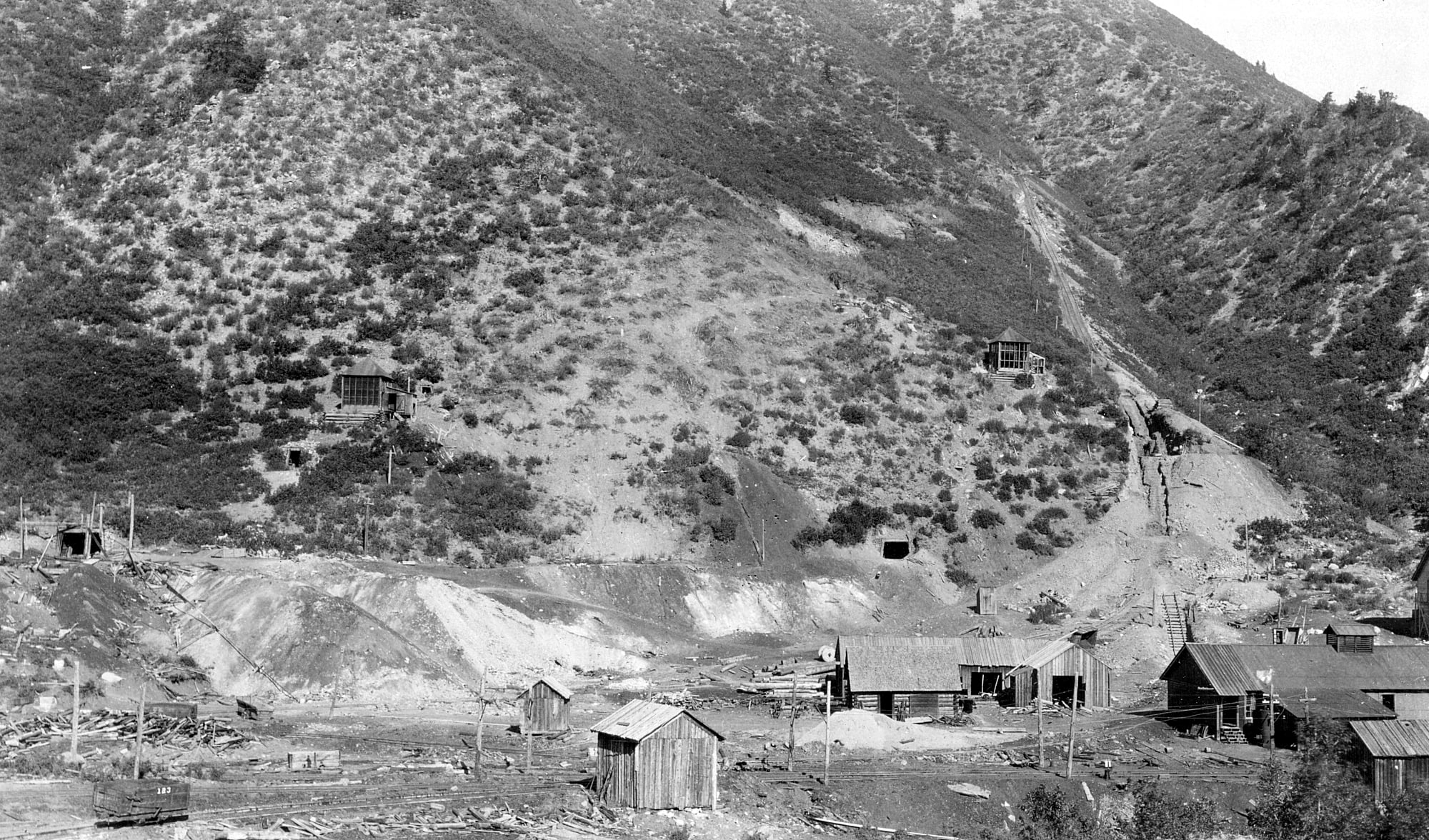
Add your text here South Canyon Mine, South Canyon, west of Glenwood
Springs, 1911.
Four miles west of Glenwood Springs, in South Canyon,
there was once a profitable bituminous coal mine that operated for more
than sixty years.
And it has been on fire for 116 years.
The mine
was started in the mid-1880s by Edward E. Pray, who ran it for about a
decade. But it had sat idle for a few years when the Boston-Colorado
Coal Company bought it in October 1902. The new owners wasted no time,
and had engineers and workers at the mine in November. Their first task
was to build a road grade for an electric tramway that would carry the
mined coal three miles to a railroad tipple. They completed the grade in
the middle of winter so snow removal was also part of the project, but
the ties and rails were able to be emplaced in the spring.
One of the
company’s goals was to tackle a coal seam known as the Wheeler Vein. The
company built a mining camp with housing for the 300 men the mine would
employ. The first year in operation, 1904, the men dug out nearly 21,000
tons of coal.
But in December of that year, the Wheeler Vein caught
on fire. Unable to extinguish the fire, the miners blocked off the seam,
ventilated smoke out of the remaining mine, and kept on digging.
In
1906, they dug out nearly 56,000 tons.
The mining continued
uninterrupted for another decade, but the failure of the Colorado
Midland Railway forced the mine to close. The company dismantled the
tramway at that time. (This was possibly done to recoup some costs by
selling the scrap and machinery, or as part of a wartime scrap drive.)
Mining resumed at a greatly reduced scale within a few years of the end
of World War I, but with the tramway gone, they turned to hauling coal
to the tipple by horse-drawn wagon. A new, smaller miners’ camp was
built closer to the mine, and this time it included accommodations for
families and a one-room school, making life just a little friendlier for
the miners.
Still, it was a life that would have easily been
recognized by their parents and grandparents, a life of hard ––
incredibly hard –– dirty work, no running water, lamp-lit homes, weekly
bathing and laundry by stove-heated water, gardens for vegetables,
hunting for meat, canning for winter, and low pay. All the while, sales
became increasingly local, smaller in scale, and lower in profitability.
The Wheeler Vein, burning since 1904, erupted into an uncontrollable
fire in 1951, and the mine closed for good shortly thereafter. The fire
broke through again in 2002 and started the Coal Seam Fire that burned
twenty-nine homes and buildings and more than 1200 acres. The Wheeler
Vein burns still today, and steam from winter snow melting on the ground
above from the intense heat below is still a regular sight at Glenwood
Springs.
Photograph taken in 1911 by Albert Leon Beekly (1883–1952),
a geologist for the United States Geological Survey. Courtesy USGS.

If you have questions, contributions, or problems with this site, email:
Coordinator - Rebecca Maloney
State Coordinator: Colleen Pustola
Asst. State Coordinators: Rebecca Maloney - Betty Baker - M.D. Monk
If you have questions or problems with this site, email the County Coordinator. Please to not ask for specfic research on your family. I am unable to do your personal research.
